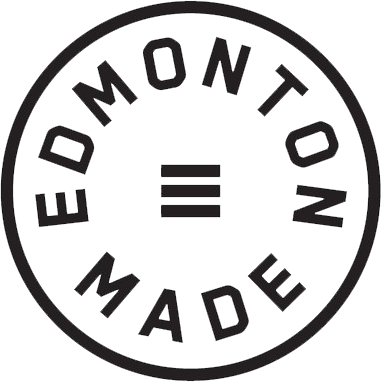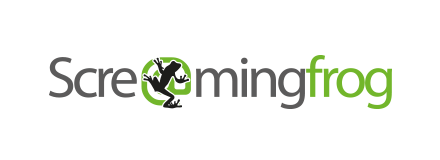Edmonton SEO Services: How to Increase Your Squarespace, Wix, or Wordpress Website Traffic and Generate More Leads
Search engine optimization (SEO) is an effective way for businesses in Edmonton to increase website traffic, generate more leads, and improve brand recognition. SEO involves optimizing your website content and structure to make it easier for search engines like Google and Bing to find your business. By targeting the right keywords, you can ensure that your website ranks higher in organic search results, which will help drive more visitors to your site.
When it comes to SEO, there are a few key strategies that are used by local Edmonton SEO firms. These include keyword research, on-page optimization, off-page optimization, and backlinking strategies.
Keyword Research
The first step of any successful Edmonton SEO campaign is keyword research. This involves researching the terms that people in Edmonton use when searching for businesses like yours online. By understanding the language of your target audience, you can create content that speaks directly to them. You can also use this information to optimize existing web pages with relevant keywords so they rank higher in search engine results pages (SERPs).
On-Page Optimization
Once you have identified the keywords you want to target, it’s time to start optimizing your webpages for those terms. This includes making sure all of your page titles and meta descriptions contain relevant keywords, as well as ensuring that all of your headings and subheadings include those terms as well. Additionally, make sure that all images on your website have alt text descriptions so search engines can understand what they’re looking at.
Off-Page Optimization
Off-page optimization involves, among other things, building links from other websites back to yours. This helps boost your website’s authority in the eyes of search engines like Google and Bing, which will result in higher rankings for certain keywords related to your business or industry. To do this effectively, you should focus on creating high quality content that other websites would be willing to link back too - such as blog posts or infographics - then reach out and ask them if they would be willing to link back to it from their own sites.
Backlinking Strategies
Backlinks are one of the most important factors when it comes to ranking highly on SERPs for specific keywords related to your business or industry. As such, it’s important that you focus on building a strong network of backlinks from other websites back to yours if you want better rankings in organic search results pages (SERPs). To do this effectively, focus on creating high quality content such as blog posts or infographics then reach out and ask other websites if they would be willing link back too it from their own sites.
How We Help Edmonton SEO Clients Choose Target Keywords
When performing local search engine optimization (SEO) for Edmonton and area, you'll need to choose target keywords. All online searches begin with a keyword. Target keywords are the search queries for which you want your local business to rank. They will serve as the foundation for your local Edmonton SEO strategy. Only after choosing a set of target keywords, however, can you begin to optimize your local business.
Brainstorm Industry-Related Keywords
Start by brainstorming keywords related to your business's industry. For local Edmonton SEO, industry-related keywords typically attract customers and drive more sales than other types of keywords. Industry-related keywords are those that convey a commercial industry or a common type of product or service associated with the commercial industry. For example, "best online marketing company in Edmonton".
You can use your local business's industry as a target keyword for local Edmonton SEO. Industries may include accounting, carpet cleaning, heating and air conditioning, gym, landscaping, plumbing, appliance repair, roofing, painting, event planning, physician, etc. Before interacting with your local business, customers may search for its industry on Google. Therefore, using your local business's industry as a target keyword can drive sales.
Industry-related keywords can include products or services associated with your local business's industry. For instance, if you operate an accounting business, you may want to use tax preparation or services as target keywords. For example, "tax advisory company in Edmonton". If you run an appliance repair business, on the other hand, you may want to use keywords like "Edmonton refrigerator repair", "oven repair Edmonton", etc as target keywords.
Questions Asked By Your Business's Customers
In addition to industry-related keywords, you may want to rank your local business for various questions. You can use questions asked by your local business's customers as target keywords. Question keywords are effective for local Edmonton SEO because they are often executed via a voice-controlled digital assistant, such as Google Assistant and Amazon Alexa.
Many local searches are performed using a voice-controlled digital assistant. Instead of typing their search query, users can speak it. Voice-controlled digital assistants can process search queries while fetching relevant results from the internet.
Customers looking for a local business will often use a voice-controlled digital assistant on a smart speaker or mobile device. Studies have shown that up to 75% of smart speaker users search for a local business at least once a week. Whether processed by a smart speaker, smartphone, or any device, these voice-executed local searches are often questions.
Create a List of Relevant Geographic Regions
You should create a list of relevant geographic regions. Geographic regions can include cities, postal codes, and street names. If your local business only has a single location, you can target the city, postal code, and street name of its address. If your local business has multiple locations or serves customers in various areas, you can target all of those geographic regions.
Local searches often include a geographic region. Customers who need your local business's available products or services may include a geographic area in their search query. The presence of a geographic region in a search query tells search engines that customers are only looking for businesses in or around that area. By creating a list of relevant geographic locations, you can integrate them into your local Edmonton SEO strategy. Examples of relevant geographical locations include, "West Edmonton SalonSpa", "Hotels in Ice District", or "South Edmonton landscaping company".
Combine Industry-Related and Geographic Regions
As depicted in some examples above, you can combine industry-related keywords with a relevant geographic region. The most effective target keywords for local Edmonton SEO combine these two elements. They feature an industry-related keyword as well as a geographic area.
The industry-related keyword may come first, or the geographic region may come first. An example of the former is "SEO Edmonton". An example of the latter is "Edmonton SEO". If your local business's city has the name of another city, you can supplement it with your business's province. Or, if you have several locations in Edmonton, you can supplement it with modifiers including North, South, NW, SE, etc. Go through your industry-related keywords and list of relevant geographic regions to combine them — the result may be a "long-tail keyword", but niche/precise, and definitely an important, target keyword.
Segment Based on Importance
After combining industry-related keywords with a relevant geographic region, you can segment these new hybrid target keywords based on importance. Some target keywords will be more critical to your local business than others. They'll reach more customers and drive more sales.
You can segment your target keywords into two groups: primary and secondary. The primary group should consist of your most important target keywords. These are the primary, short-tail keywords you want your local business to rank. The secondary group should consist of less-important target keywords.
Avoid using too many primary target keywords. While you can use dozens or even hundreds of secondary target keywords, you should keep primary keywords to a minimum. Just two to five primary keywords will suffice for most local businesses. Using too many primary keywords will dilute your local Edmonton SEO strategy. By focusing on just a few highly important target keywords, you'll have a more robust local Edmonton SEO strategy.
Don't Overdo the 'Near Me' Keywords
Contrary to popular belief, you don't need to use "near me" keywords for local Edmonton SEO. Searches with the "near me" modifier are common. According to HubSpot, the number of "near me" local searches has increased nearly tenfold over the past two years.
Rather than including a geographic region like "Edmonton" or "South Edmonton" in their search query, customers may consist of "near me." It tells search engines that they are looking for nearby businesses. But you don't have to optimize your local business to rank for "near me" keywords.
Search engines like Google will automatically rank it for "near me" keywords performed in relevant geographic regions. Search queries with "near me" explicitly indicate local intent. After identifying your local business's location or the areas where it serves customers, search engines will automatically rank it for "near me" keywords. The bottom line is that optimizing your Edmonton business for "near me" keywords could be a waste of time. True, that if a searchers device does not disclose it's geographical location (perhaps through modified privacy settings) Google may have trouble pinpointing the approximate location and subsequently a good, local search result, just don't overdo it.
All forms of SEO require target keywords, including local Edmonton SEO. To choose target keywords for local SEO, combine industry-related keywords with a relevant geographic region. You can use them as primary and secondary keywords. When mixed with question keywords, these hybrid target keywords can help you establish a successful local Edmonton SEO strategy.
Edmonton SEO FAQs
What does SEO cost in Edmonton?
SEO pricing depends on competition, goals, and content needs. Most Edmonton
businesses invest between $900-$3,500/month depending on the
scope of work and the level of competition in their industry.
How long does SEO take to work?
Most SEO campaigns begin showing measurable improvement within
3-6 months, with stronger long-term results building over
6-12 months as rankings, content, and authority grow.
What makes CreoLogic different from other Edmonton SEO companies?
CreoLogic focuses on practical, measurable ranking improvements through
high-quality content, technical SEO, and modern AI-search visibility strategies,
rather than generic SEO packages or one-size-fits-all approaches.
Do you only work with Edmonton businesses?
CreoLogic specializes in SEO for Edmonton and Alberta-based businesses,
with a strong focus on local lead generation, Google visibility, and competitive
positioning within the Edmonton market.





